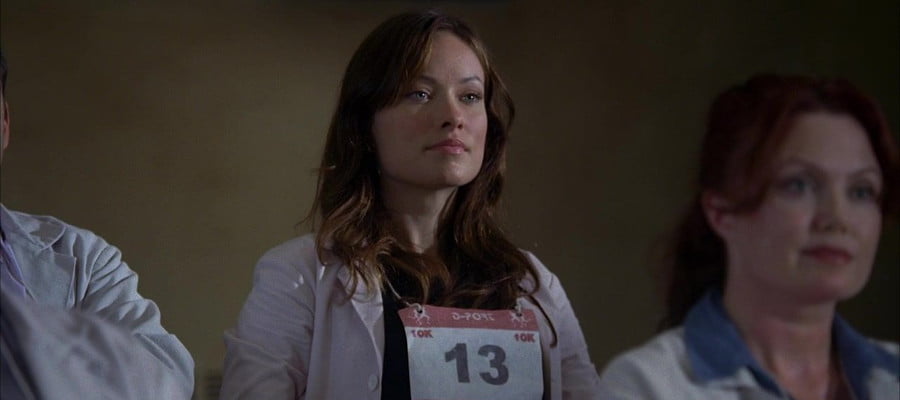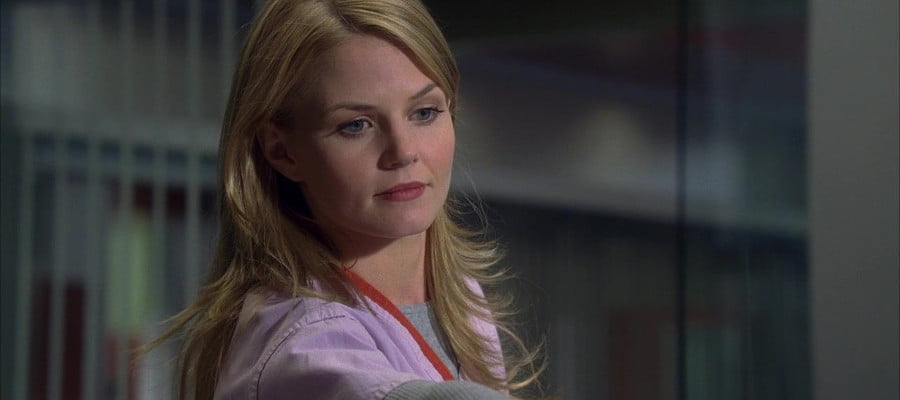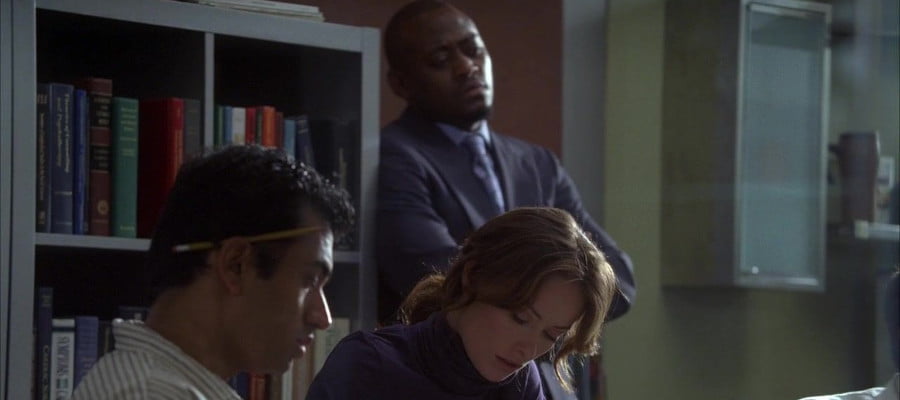One of the last television programs I watched, regularly, when there was a television in my house plugged into a plug in the wall that was connected to an antenna on the roof that pulled signals out of the air and converted one of five free-to-air channels, paid for with advertisement revenue of me watching the show, was House. I remembered thinking it was very clever, a very smart series, whose main character was very smart and clever and that justified such complex narratives.
I wasn’t quite sure what I expected when I rewatched the show. My memories of the show cut off at some point, which I assumed meant I just wasn’t that into sitting on my sofa to watch something far away from a system of videogames and music I had in the other room. What I expected to find in hindsight was a show that was probably really intelligent and thoughtful, and that I’d still find it annoying because I’d grown tired of dealing with dudes who fancied they were like House.
Turns out I was half right.

For those of you too young to remember this program, House was a 2004-2012 TV series modelled loosely on Sherlock Holmes, a story about a famously annoying asshole who was just the worst to deal with and high off his face most of the time but it was justified because he was such a galactic brain gigachad he was doing the thinking nobody else could do. This was represented by him solving crimes in the heart of the British Empire, mostly in the company of rich people. There was also a cult of kung fu mormons and no I’m not joking.
House reframes the Holmes story as ‘what if Holmes was a medical doctor and solving medical mysteries, and also periodically used slurs.’
If you want a long form explainer on the whole of the series, you don’t really need it from me. There’s an extensive series, called Everything But The Kitchen Sink, er, that’s five words, I need one more, series, which approaches the entire arc of the series and talks about all sorts of small specific examples of the characters’ behaviours, problems with the structure and pacing, the way that you’ll keep seeing a sex criminal’s name in the credits every episode, and the way that the ending seemed to be a complete screwup but maybe that’s what it always wanted to be, all along? I’m not going to deliberately replicate anything there. I think it’s a good series, there’s a lot of work put into it, and it’s easy to see how someone who really loved this series and stayed loving it, and loves the craft of TV might wind up at this position of ‘gee, wow, this great series could have been improved in a bunch of ways.’ It’s fun, it’s an enjoyable dive.
While riding on Jessie Tribble’s positivity about the series – even when discussing the series’ failings – it’s easy for me to focus on the best. When left to my own devices, though, it’s a bit different.
I have two problems with the Medical Drama about Doctor House, and they are unfortunately, both the Medical Drama and the Doctor House.

Normally when you watch a medical drama, you’re watching something you don’t know anything about. I know I don’t know anything about doctorology or the science of the nurses, so I understand when I’m watching a medical drama, it is basically, to me, Star Trek. Cativating the intubated patient’s edemic pulmination is basically the same thing as rotating the transmission on the polarity shields, and I’m okay with that. In a lot of cases, House skirts into that space of ‘smart people exchanging weird facts’ kind of things, like how you can use liquor to stabilise someone who’s been poisoned with printer toner, or that you can get rabies from bats.
House also includes a bunch of things that are meant to drive with the ‘plot’ of the episode, which means that it reaches outside of the medical stuff where I don’t know anything about it into things I do know a bit about. For example, there’s an entire episode about a magician doing card tricks. That magician does multiple card tricks that I know methods for. Most of them do not involve doing them solo, and so seeing a classic trick which needs an accomplice done from a hospital bed by someone who has difficulty standing made me go: Hang on, do they not realise they left it incomplete there?
Because it’s not like you can’t do those tricks with other methods but the options are incredibly limited if you’re bedridden. If a card is on a far side of a glass wall, it’s there because someone put it there. When you treat a magic trick like that, though, it tells me ‘hey, we’re kinda just making things up as we go, and it doesn’t matter.
Then there’s an episode where an entire misdiagnosis relies on a dog taking ivermectin from the patient. This happened to drop just as suddenly I, and a huge number of people, were becoming really aware of ivermectin, so, weird coincidence there, sorry that a global pandemic and subsequent conspiracy theory made your plot hole obvious. The plot hole isn’t just related to ivermectin (where a dog takes a human’s dose and dies, which is the opposite of how that would go), but also that this very well disciplined assisted living dog steals medication from its owner exactly once and does it in a way that nobody notices and also leaves the cup the medication was in in a completely clean, intact, unchewed state.
I don’t know medical drama.
I do know a dog.
None of that makes any goddamn sense.
The concern here isn’t that there are plot holes in the technobabble medical stuff, though. It’s that the series uses its medical drama as a front-end to present hard or impossible choices in social situations as commensurate to hard or impossible choices in medical situations. Everyone lies (medically) so everyone lies (socially) and the two things match and line up.

Once I popped the bubble of the medical quandraries and realised that they’re extremely surface readings of complex topics, though, you realise that it’s not ‘we had an interesting puzzle for these characters to work through,’ like a Columbo story navigating towards the truth with open information. It’s much worse, it’s that the universe contrives around House: the information is opaque and pretends to be open, you couldn’t work out the solutions because the information isn’t available and it is in many cases entirely wrong.
That means you have to examine the Medicine Wizard.
House is an exemplar of what I’d like to call privilege pornography. Pornography is a neutral term, at all times; it is about media that wants to expose a singular experiential component at the behest of all others. Sexual pornography is about showing sexual intercourse with such a focus that plot, set, lighting, editing are all less-important concerns. The focus on the indulgence of the media is what matters.
House is a character who exists to be pornographically privileged.
The fantasy of House is ‘imagine if I was so good at my job, I could be terrible at everything else.’ Imagine turning up to work stoned and calling people slurs and destroying property and failing to communicate with your boss and lying to all the people around you who are there to keep you from doing that, but it’s okay, because you’re really good at this.
House is meant to be someone whose skill justifies his racism, his sexism, his sexual harrassment, his transphobia. He doesn’t talk to patients, because they lie, and over and over again he’s shown to be right in this, because he solves problems with patients that are the byproduct of those patients lying to him, and you know why patients might lie to you? Because you openly violate their privacy and dignity, and they can’t trust you.
The series keeps winding around about how House’s self-destructive behaviour is an impediement to his happiness, but it doesn’t seem to notice that it’s also making him a terrible doctor. He has the most patient staff in the world (who should not be putting up with his abuse) each of whom can do the diagnoses he wants with a bit less you know, the active misanthropy. The hospital even says it’s constantly fighting lawsuits he’s responsible for.
He saves one life a year at an overwhelming cost.
If that cost was defrayed across a dozen other doctors, giving them time, assistants, recovery and supplies then maybe they’d be less overworked, more able to do the exact same diagnosis he does because the problem isn’t that these are impossible puzzles with diseases nobody’s heard of. It’s because House keeps encountering very mundane diseases complicated by his own behaviour making it impossible to get reliable, trustworthy information out of the patients.
Under it all, there’s this quiet admission that hey, we know a white guy could get away with all this.
We know this privilege exists.
Imagine, the series asks, how cool it’d be if he deserved it.

If this series was about a master hacker, and they showed the way he hacked things was bygoing to wikipedia and pressing the ‘edit’ tab, you would assume it was a joke. If it wasn’t a joke, you’d very obviously have a moment of ‘oh, wait, this author doesn’t understand the thing they’re talking about.’
What then, would you think, of a work that told you this is serious work, by people who understand complex relationships and want to present you a complex vision of reality, a story that unflinchingly recognises the realities of how humans behave?
Would you trust them?
Why?
I really liked House. It’s really good at a very particular kind of clever, and as with Christopher Hitchens contemporary of it, all of that cleverness was turned towards the task of being cruel.
The cruelty did not need to be right; the world would conform to the cruelty. The cruelty did not need to be justified; the world would create the justification. The cruelty was not indicative of intelligence; the world would make the cruelty intelligent.
Also, while the transphobia is kind of expected for a medical drama of the time, It’s rare to see biphobia front and centre in media like it is here, where they bring this idea to the forefront that had been largely left invisible, and did so entirely so they could directly conflate bisexuality with depravity. Like, I’m used to being invisible, not being directly abused, so score one for representation, I guess.
I like bits of House now. Some zingers. Some obtuse jokes that the medical drama elements need to set up. One of the versions of Foreman seem an interesting character who could have represented an interesting direction for the story. I like the endless teasing of how Chase is so hot and he didn’t know it. I really like Thirteen, who’s expressive and clever and has this interesting story going on about the hippocratic oath and terminal care. Cuddy, when her story isn’t about House’s Sad Boner, is a pretty cool character. The suddenness of Kutner’s departure from the show based on real life events was really interesting and forced the show to do some things that I thought made compelling moments.
House is a show made up of some interesting pieces.
But it’s fucking stupid television.

1 Trackback